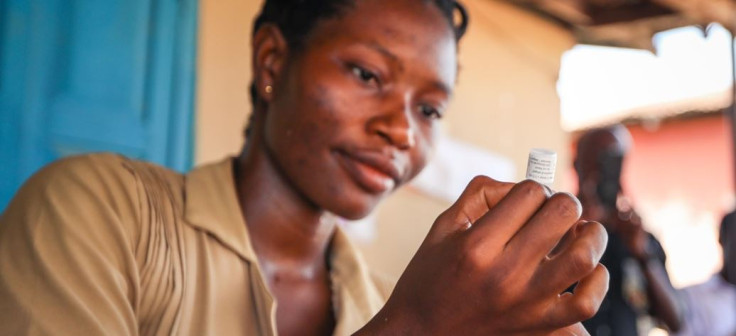First-ever child deaths reduction prioritising vaccine allocation to prevent malaria in Africa
Around 18 million doses of the first-ever malaria vaccine have been assigned to 12 countries after they proved effective in a pilot study started in 2019.

African countries get major relief from malaria as WHO and UNICEF come together to allocate 18 million doses of the first-ever malaria vaccines to 12 countries in the continent
The vaccine called RTS,S/AS01 has been allocated to the countries for a two-year period of 2023-25 under the Gavi vaccine alliance.
These countries are the most affected by malaria and need this vaccine urgently. Through the Malaria Vaccine Implementation Programme (MVIP) countries like Malawi, Kenya and Ghana will receive more doses for vaccinations in pilot areas while new allocations are made in Uganda, Sierra Leone, Nigeria, Cameroon, Congo, Burkina Faso, Benin, Burundi and Liberia.
Malaria is one of the leading causes of death in the continent and this vaccine rollout program is crucial to fight the disease burden. Vaccine allocation was prioritised based on areas with the highest need where people are more prone to illness and more child deaths happen.
Earlier in the month, WHO partnered with the African Development Bank to launch an investment platform that will help primary healthcare in the global south. A part of the primary health services is disease prevention through vaccines and other interventions.
Hope for saving the lives of African children
In 2021, 95 per cent of malaria cases and 96 per cent of deaths in the world happened in Africa. It's one of the deadliest diseases of the continent which killed half a million children below the age of 5.
The Associate Director of Immunization at UNICEF, Ephrem T Lemango reiterated this when he said that every minute a child under five years old dies of malaria in Africa. Although these deaths were treatable and preventable for a long time it didn't happen. This vaccine will provide these children with a hope of survival. As the supply increases there will be hope for more life-saving advancement.
WHO Director of Immunization, Dr Kate O'Brien stressed the need for the vaccine to fight the disease occurrence in children saying it's the first allocation that prioritises children. This will save many young lives as children at risk get access to the vaccine. Such strong childhood immunisation is crucial for equity in malaria prevention.
Increase in demand after the success of the pilot study
Funded by Gavi, Unitaid and the Global Fund to Fight AIDS, Tuberculosis, and Malaria, the MVIP has helped countries like Ghana, Kenya and Malawi to secure the malaria vaccine since 2019. More than 1.7 million doses of vaccine have been given to children in these three countries where it helped in reducing child deaths and the severity of the disease. With the safety and effectiveness ascertained in the initial phase of the vaccine administration, 28 other African countries have asked for it.
These 18 million vaccine doses for 12 African nations were allocated from the supply of Gavi through UNICEF. The countries will be able to roll out the vaccines in 2024 as they get the first allotment by the last quarter of this year.
Speaking about the allocation, the Managing Director of Country Programmes Delivery at Gavi, Thabani Maphosa said the vaccine along with other interventions will help in fighting malaria as it prevents deaths every year. The aim is to utilise the existing doses as effectively as possible while asking manufacturers to speed up the supply. The learning from the pilot programs in Ghana, Malawi and Kenya are helping in this process as they set out to deliver in 12 countries.
The vaccine supply framework
Due to the limited supply of the vaccine in the initial years, WHO asked experts from Africa to chalk out a framework for allocating the doses. This framework drawn mostly by experts from the most affected region, Africa, advised to allocate the vaccine in the areas of greatest need.
The Framework implementation group had people from the Gavi Secretariat, WHO, UNICEF and Africa CDC along with independent advisors and members of civil society.
By 2026, the global demand for malaria vaccines will reach 40 to 60 million doses, with the demand increasing by 80 to 100 million doses every year. In such a scenario this allocation is crucial.
Along with the initial supply of RTS,S/AS01 vaccine developed by GSK and supplied by Bharat Biotech, a second vaccine R21/Matrix-M developed by Oxford University and supplied by the Serum Institute of India will also be available.
© Copyright IBTimes 2025. All rights reserved.






















